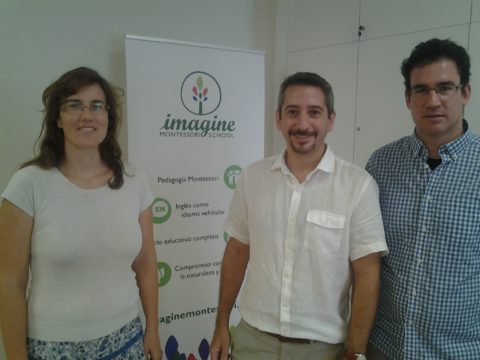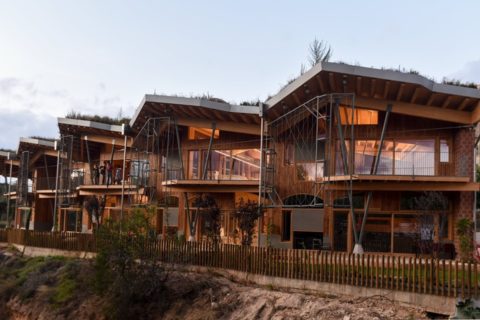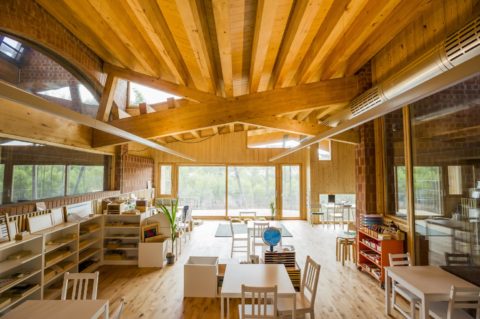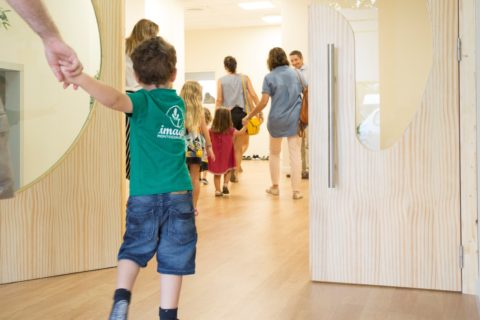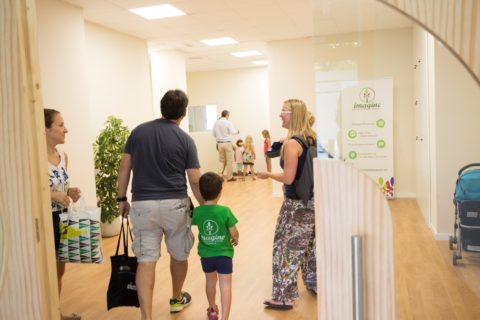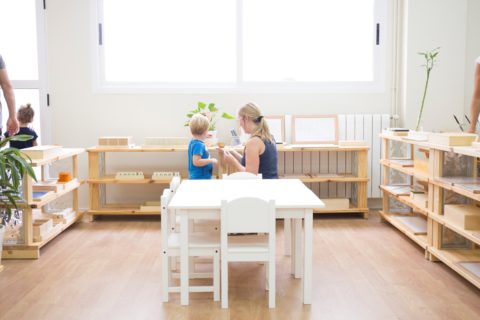Imagine Montessori School La Pinada has inaugurated its new school in Paterna.
The first centre in Spain with a double certification in sustainability occupies 5,000 square metres surrounded by thousands of pine trees and with four million euros of investment.
To mark the inauguration and to distance themselves from traditional openings, a plaque was not uncovered, but a tree was planted.
Thanks to the design, an energy saving of 70% has been achieved compared to similar buildings. The majority of the roof surface is landscaped, to improve the energy performance of the building, as well as its integration into the environment.
Wood, a material with a low carbon footprint that contributes to the fight against climate change, is one of the major protagonists alongside light and nature.
Imagine Montessori School La Pinada has been conceived with the aim of minimising the use of energy throughout the life cycle of the building, while also ensuring a 100% renewable origin, making it the first school in Spain to obtain a double certification in sustainability: Breeam Excellent and Green 4 leaves.
Once upon a time there were three engineers who studied together at Valencia Polytechnic University, and who stayed in touch as their careers developed in different parts of the world.
They were Iker Marcaide, Mariano Pontón and Irene Cañero. After graduating, Iker developed his skills in Boston and London, whereas Mariano worked in Indonesia and Ireland. Irene did a Master’s in London and collaborated on some of Iker’s many projects, such as Flywire, an innovative and streamlined way to make international payments that is fast, simple and cost effective.
When they had their own children and started to look for the best possible education, they all realized over time and through experience that their children should be bilingual, and that they should be educated in an environment that was stimulating, respectful of their individuality and encouraged them to learn, and to want to learn.
Having had experience of sending their children to British schools and believing that knowing English was vital, they were not convinced that what was being offered could not be improved upon, and so they decided to do it themselves.
Only a year later, Imagine Montessori became a reality in Valencia.
The school started in September 2016 after a year of work preparing the premises and finding the teachers, and had over thirty children from a variety of nationalities, including Italian, French, British, Portuguese, German, Peruvian, and of course Spanish, including their own children. By 2017 that number had increased to 90, and the first Primary classrooms for children from 6 to 9 years opened.
The teachers are also very international, including people with experience working in the UK, USA, Germany, Ireland, Australia, Egypt, Italy and Portugal.
The bases of the system are a respect for the environment, a low teacher student ratio, a system that encourages parent involvement and student choices, even at the youngest ages.
Classes include different ages (a maximum of three years difference), so that the older students take on the responsibility of helping the younger ones, who benefit from the maturity of the older ones, all of which encourages a collaborative rather than a competitive atmosphere.
The founders want the school to be available to all families, not just wealthy ones, and consequently are actively seeking sponsorship from companies to provide grants for families with fewer resources.
So how does the Montessori approach differ from others? On a brief visit I was able to see the freedom with which the children choose what to work on, and that all of them were engaged in constructive work in a spacious, well-equipped environment, a situation that most of us can or could only imagine.
The Montessori approach seeks to integrate academic, emotional and social aspects.
It gives precedence to the development of each child’s potential, impacting upon the quality of life of the educational community.
It covers and expands on all of the requirements of the official curricula, both the British Council’s one and that of the Consellería d’Educació Valenciana.
It opens up opportunities for participation and involvement on the part of the children based on their interests, using self-management of projects.
It enhances personal growth through direct contact with nature.
It adapts to the individual educational needs of each and every child.
It respects each stage of the child’s development and pace of learning.
To paraphrase Kahlil Gibran, the good teacher does not bid you enter the house of his wisdom, but rather leads you to the threshold of your own mind.
You may say that Iker, Irene and Mariano are dreamers, but the response of Valencian parents makes it clear that they are not the only ones.
In 2018 Montessori will undergo a new expansion with the opening of a second centre in Paterna.

